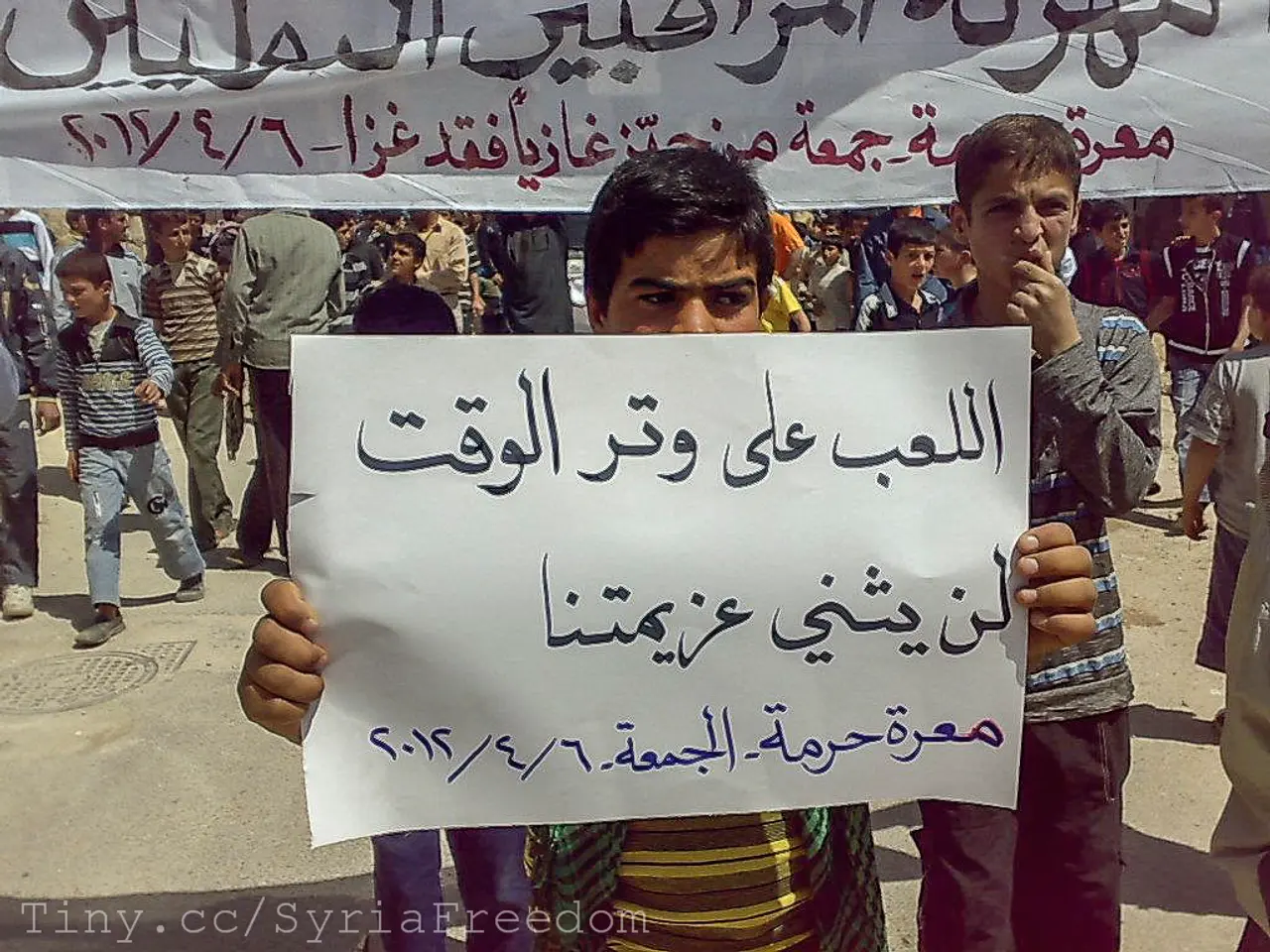U.S. Allyship Reinforced, NATO Strengthened, EU Objectives Clarified (Wadephul)
Foreign Minister Johann Wadephul of Germany has reaffirmed his commitment to maintaining strong alliances, particularly the transatlantic defense alliance, and upholding historical and ethical responsibilities in foreign policy.
In a series of statements, Wadephul has expressed his belief that the addition of Sweden and Finland as member states would provide a basis for a secure life for Germany. He also emphasized the need to maintain the transatlantic security architecture, highlighting that it is crucial, especially in the current political climate, to uphold the alliance in the face of uncertainty.
Wadephul has praised the foreign policy cooperation with US Secretary of State Marco Rubio, stating that there has been a great deal of agreement in foreign and security policy between them. This cooperation has been evident in central conflict areas such as Israel, Iran, Ukraine, and the Middle East peace process. Wadephul emphasized that he can absolutely rely on Rubio's support, as they think the same way.
Regarding Germany's foreign policy towards Israel, Wadephul has made it clear that he strongly opposes Israeli policies advocating annexation of the West Bank. He has called for clarity from Israel that no expulsion or annexation policies are being pursued. Wadephul also underscores the urgent humanitarian needs in Gaza, urging Israel to allow safe access for aid and the release of hostages held by Hamas.
In terms of NATO, while Wadephul did not provide detailed statements on specific challenges, his focus on stability in the Middle East, managing tensions with Israel, and commitment to the transatlantic alliance implies his support for a strong NATO role in addressing security threats, including those linked to Russia’s aggression in Ukraine, which remains a key security issue for NATO members.
Wadephul has also been vocal about his pragmatic approach to foreign policy, valuing close, calm, and reliable relationships. This is evident in his relationship with Chancellor Friedrich Merz, with whom he has a close and coordinated relationship. He has distanced himself from his predecessor Annalena Baerbock, both in terms of content and style.
Lastly, Wadephul has criticized the focus on feminist foreign policy and emphasized the importance of prioritizing German and European interests. He believes that foreign policy must make concrete contributions to freedom, security, and prosperity.
In summary, Wadephul’s foreign policy centers on upholding Germany’s historical and ethical commitments in the Middle East, addressing humanitarian crises, opposing unilateral annexation, and reinforcing Germany’s role within NATO and the transatlantic partnership, especially concerning Ukraine’s situation and maintaining alliance solidarity.
- The foreign policy of Germany, as advocated by Foreign Minister Johann Wadephul, prioritizes the response to migration and war-and-conflicts in the Middle East, especially the urgent humanitarian needs in Gaza.
- In the realm of policy-and-legislation and politics, Wadephul has highlighted the significance of Germany's alliances, such as the transatlantic defense alliance, and the need for a pragmatic, reliable approach to foreign policy, as demonstrated in his relationship with Chancellor Friedrich Merz.
- Discussion of Sweden and Finland's membership, crime-and-justice matters in Gaza, and NATO's role in addressing security threats, such as those linked to Russia’s aggression in Ukraine, are all topics that have emerged in the general-news context, as Germany navigates its foreign policy landscape.







